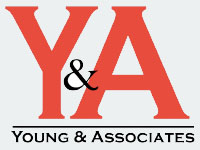Measurement Systems Analysis
Course Description
Course is for Engineers, Scientists, and Managers who have direct responsibility for measurement evaluation, selection, and control. Course covers the basic concepts associated with Measurement Systems Analysis, repeatability, reproducibility, accuracy, linearity, stability, standards selection and use, calibration and compensation and measurement control.
Software:
JMP
8 Hours
Contact Information
Email
paulette@pyyoungassociates.com
Phone
1 (650) 967-2700
Address
P.O. Box 2103
Sunnyvale, CA 94087-0103
Course Objectives
Course Objectives: As a result of the course, the participant will be able to:
- Determine gage capability
- Assess accuracy, linearity, stability, repeatability and reproducibility in test equipment
- Design and deploy SPC for measurement control
- Select and establish standards
- Describe proper methods for instrument calibration and compensation
- Conduct gage capability for inspection activities
- Discuss how MSA impacts customer satisfaction
Course Outline:
Introduction to MSA
MSA is a key to systematic product development
Background statistical principles
Sources of error
Focus on the measurement process
Terms & Definitions
Repeatability
Reproducibility
Accuracy
Linearity
Stability
R&R, Linearity, & Accuracy
2 factor crossed design for Variables MSA
Repeatability & Reproducibility
R&R and Capability Example
Accuracy example
Linearity example
Correlation, Calibration and Compensation
Correlation and compensation
Soft compensation versus standard calibration
Scatterplot Method
Problems with r2
SPC for Measurement Control
Selection and utilization of Standards
SPC for Measurement Control
SPC using stable standards
SPC using unstable standards
MSA for Attributes Operational Definitions
Effectiveness, P(miss), P(false alarm)
Kappa, escape rate and bias
